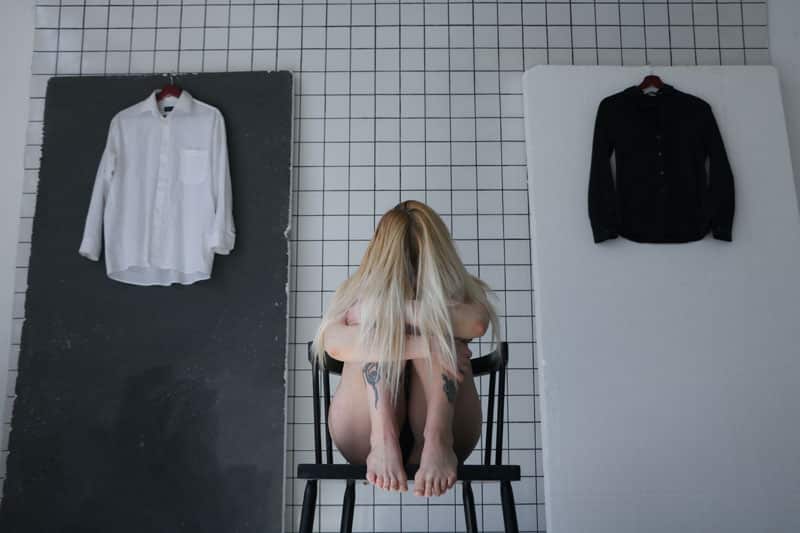
Caffeine is a well-known stimulant, and it is known to cause several side effects, including heart palpitations, breathing difficulties, and acid reflux. However, caffeine is also linked to anxiety. Drinking it late at night is also associated with sleep disruption, and it speeds up the heartbeat, making it harder to control your pressure. So, should you avoid caffeine during the evening? Find out here.
Caffeine increases cortisol
There is some evidence that caffeine consumption can increase cortisol in the body. However, the effects of caffeine on the body are not well understood. Researchers have yet to understand the impact of caffeine on the brain entirely. The results of caffeine on the body have only been studied in rats. The current study is the first to determine the effect of caffeine on the body. Whether or not caffeine can increase cortisol levels is still unclear, but this study is one of the first to suggest that it may cause anxiety.
Coffee, tea, and other drinks that contain caffeine increase the levels of cortisol and epinephrine in the brain. Caffeine directly affects the stories of these chemicals produced by the adrenal glands. While they are responsible for fueling the fight or flight response, caffeine increases cortisol levels in the body. This causes blood pressure to rise, the heart to beat faster, and the energy levels to skyrocket. This can help you escape a lion, but it can also worsen your sleep.
The effects of caffeine on cortisol levels were investigated using separate MANOVAs and Student t-tests. In both settings, men and women showed similar results after caffeine exposure. However, caffeine has a more significant effect on men than women when used with exercise. Hence, it is essential to understand caffeine’s different mechanisms on the brain. It is also necessary to know how caffeine can influence your health.
Caffeine increases heart rate.
Everyone has had a coffee or tea in their life. You brew it in the morning and sip it as you start your day. You even drive to the local coffee shop to get a quick pick-me-up. Whether you like it black or with a touch of sugar, caffeine affects your heart rate. In this article, we’ll discuss why. Let’s look at some ways caffeine can affect your heart rate.
The effects of caffeine on heart rate vary widely between individuals. The amount of caffeine we consume and how much we exercise may determine how quickly the effects occur. It is also unclear whether caffeine consumption during exercise directly increases the heart rate. Although studies have shown an increase in heart rate, there is no direct relationship between the two. A biphasic effect is characterized by a decrease in resting heart rate between 45 and 75 minutes, followed by a moderate increase at 105 minutes.
While research has shown that caffeine may increase heart rate and blood pressure, it is unclear whether it raises it. The effects of caffeine on the heart occur due to caffeine stimulating the nervous system and boosting blood pressure. Although elevated blood pressure can increase the risk of heart attack, it seems to be a short-term effect. Caffeine increases heart rate only slightly and is not harmful in low doses. However, higher intakes of caffeine may increase the risk of cardiac arrhythmias.
Despite the potential benefits of drinking coffee and tea, it is essential to remember that caffeine raises your heart rate by increasing adrenaline levels in your blood. This increase will cause the heart to contract faster and more forcefully. Caffeine may also cause palpitations and skipped beats. For these reasons, caffeine should only be consumed in moderation. The effects of caffeine on the heart are temporary. The positive results will fade with time.
Caffeine increases breathing problems.
Although caffeine does not cause harm to most people, some patients are more susceptible to breathing problems. Caffeine increases the rate of breathing and can interfere with medications, which is why it is a good idea to avoid caffeine before a lung function test. Small amounts of caffeine may improve lung function in a short time but can negatively impact a spirometry test. If you have a breathing problem, avoid caffeine at least two hours before the test.
The effects of caffeine on the respiratory exchange were studied on two subjects given doses of one, three, and six mg of caffeine alkaloid per kilogram of body weight. Although caffeine consumption did not increase respiratory rate, it significantly increased the volume and depth of breathing. Additionally, caffeine stimulates the respiratory center, which increases the ability to blow off preformed carbon dioxide. Despite its potential benefits, caffeine may cause breathing problems in people with lung conditions.
Caffeine is not a replacement for prescribed asthma medication. If you have COPD, caffeine may have no effect. While caffeine may increase your heart rate and reduce blood pressure, it does not decrease lung inflammation. Following your prescribed treatment plan when caffeine increases breathing problems is essential. The only other research supports caffeine’s adverse effects on COPD. As a result, caffeine may not affect COPD symptoms.
Researchers have long wondered if caffeine may benefit people with breathing problems. They discovered that caffeine’s chemical structure is similar to that of theophylline, a drug that relieves the symptoms of wheezing and shortness of breath. Theophylline is an amino acid that breaks down in the liver, where it largely stays in the body—taking a cup of coffee before bedtime can improve airway function for up to four hours.
Caffeine withdrawal symptoms are not as severe.
 Withdrawal from caffeine begins anywhere from twelve to twenty hours after the last cup of coffee is consumed. The symptoms can last anywhere from two to nine days. To make the process easier, it is recommended to wean yourself off of caffeine gradually. While most caffeine withdrawal symptoms are mild, some people experience unpleasant effects. These symptoms varied in intensity and duration depending on individual physiology and consumption.
Withdrawal from caffeine begins anywhere from twelve to twenty hours after the last cup of coffee is consumed. The symptoms can last anywhere from two to nine days. To make the process easier, it is recommended to wean yourself off of caffeine gradually. While most caffeine withdrawal symptoms are mild, some people experience unpleasant effects. These symptoms varied in intensity and duration depending on individual physiology and consumption.
The best way to effectively withdraw from caffeine is to cut back gradually. Cutting back too quickly can trigger severe withdrawal symptoms. Avoiding caffeine ultimately can help reduce the number of symptoms experienced. However, cutting back too much too soon can lead to a dependency on the stimulant. You should consult with your healthcare provider before trying to quit caffeine. If caffeine is a regular part of your diet and you have trouble sticking to a schedule, try increasing your physical activity.
Many people who are heavily dependent on caffeine experience mood swings and irritability. Taking a break from the beverage can also lead to depression. Although these symptoms are not as severe as those caused by coffee, they can be significant enough to cause depression. And it is essential to note that caffeine remains in your body for about four to six hours after you’ve last drunk a cup.
Some people experience a headache after caffeine withdrawal. However, these symptoms are similar to those associated with migraine. Caffeine is known to increase blood flow in the brain, which can cause a migraine in some people. It is also important to remember that withdrawal symptoms are temporary and should subside on their own as your brain adjusts to the increased flow of blood. If you do experience these symptoms, don’t worry. It is normal to feel dizzy and tired after caffeine withdrawal, as long as you don’t overdose.
Decaffeinated coffee can reduce anxiety.
Some people drink decaffeinated coffee to reduce anxiety, but decaf coffee is still not caffeine-free. Caffeine is one of the active ingredients in soft drinks, energy drinks, and chocolate, so you should limit your intake or even eliminate coffee. While there are other healthy drinks that are low in caffeine, decaf coffee is an excellent alternative for those who suffer from anxiety.
Those who suffer from anxiety may not realize it, but coffee contains a small amount of caffeine that can increase the symptoms of anxiety. While this is a small amount compared to the effects of caffeine on the body, it’s still enough to increase the symptoms. While moderate consumption won’t trigger anxiety-related symptoms for most people, those sensitive to caffeine may want to cut down on their daily dose. Decaffeinated coffee has also been shown to lessen withdrawal symptoms, making it an ideal choice for those who suffer from anxiety.
Some people find decaf coffee helpful in reducing anxiety. It also reduces jitters and digestive problems. It also contains antioxidants and a small amount of nutrients. In addition, decaffeinated coffee contains less caffeine and can even reduce the risk of cardiovascular disease. It can also reduce your risk of getting Alzheimer’s disease and Parkinson’s disease. Decaffeinated coffee also contains fewer calories and is better for you overall.
However, it’s important to know what your body responds to. For example, coffee can cause anxiety if taken regularly or if you consume too much in one sitting. For some people, caffeine has been proven to worsen their anxiety symptoms. To help reduce your anxiety, cut down on your coffee intake. However, you should still seek medical advice if you suspect you’re suffering from anxiety. This way, you can take steps to prevent yourself from developing the condition.




